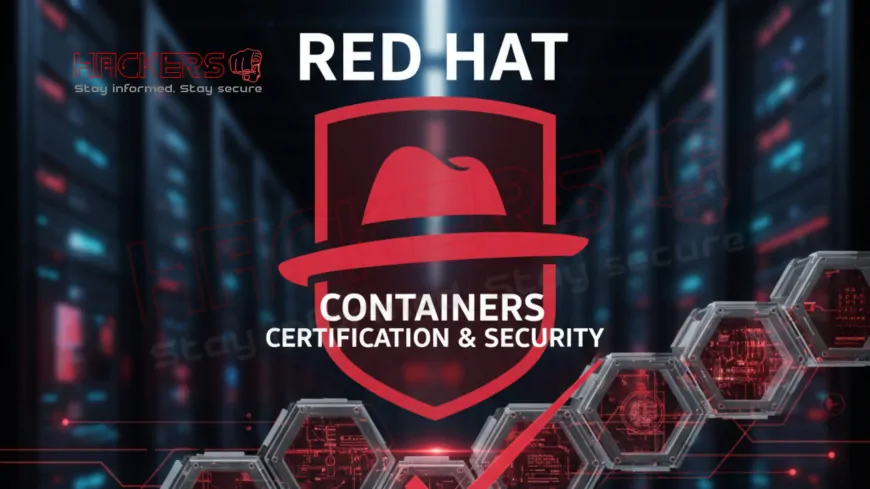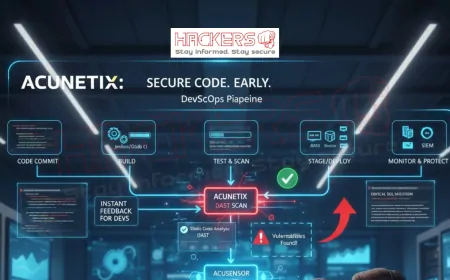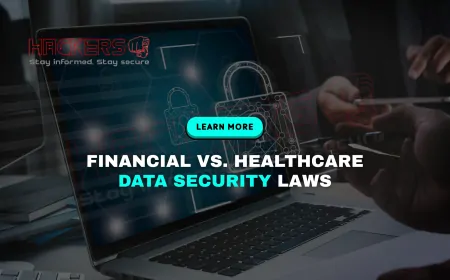How Does Red Hat Certified in Containers Help with Docker and Kubernetes Security?
Containers have transformed how we build, deploy, and manage applications, with tools like Docker and Kubernetes leading the charge in modern IT environments. However, with great power comes great responsibility securing these containerized systems is critical to protecting sensitive data and ensuring compliance. The Red Hat Certified Specialist in Containers (EX180/EX188) certification equips professionals with the skills to manage containers securely using Red Hat’s tools, offering insights that enhance security practices for both Docker and Kubernetes. In this blog, we’ll explore how this certification strengthens your ability to secure containerized environments, making complex concepts accessible to beginners and seasoned pros alike in a clear, human-friendly way.

Table of Contents
- Overview of the Red Hat Containers Certification
- Why Container Security Matters
- Red Hat Tools and Their Security Features
- Enhancing Docker Security with Red Hat Skills
- Strengthening Kubernetes Security
- Real-World Security Applications
- Security Skills Table
- Preparing for the Certification
- Conclusion
- Frequently Asked Questions (FAQs)
Overview of the Red Hat Containers Certification
The Red Hat Certified Specialist in Containers (EX180/EX188) is a performance-based exam that validates your ability to manage containers using Red Hat’s tools: Podman, Buildah, and Skopeo. Conducted in a Red Hat Enterprise Linux (RHEL) environment, the exam tests hands-on skills like creating containers, building images, configuring storage, and securing workloads. Unlike Kubernetes-focused certifications, EX180/EX188 concentrates on container fundamentals, making it a foundational credential for securing containerized environments.
The certification emphasizes security practices, such as running containers as non-root users and using SELinux (Security-Enhanced Linux), which are directly applicable to Docker and Kubernetes. By mastering these skills, you gain the expertise to enhance security across various container platforms.
Why Container Security Matters
Containers are lightweight and portable, but their shared kernel architecture and dynamic nature introduce unique security challenges. Misconfigurations, vulnerable images, or excessive privileges can lead to data breaches or system compromises. Both Docker (a popular container runtime) and Kubernetes (a container orchestration platform) require robust security measures to protect enterprise workloads.
Key security concerns:
- Image Vulnerabilities: Images may contain outdated or malicious software.
- Privilege Escalation: Containers running as root can compromise the host system.
- Network Exposure: Misconfigured networks can expose containers to attacks.
- Compliance: Enterprises must meet regulations like GDPR or PCI-DSS in containerized environments.
The EX180/EX188 certification addresses these challenges, providing skills to secure containers effectively.
Red Hat Tools and Their Security Features
The EX180/EX188 focuses on three core tools Podman, Buildah, and Skopeo each contributing to container security:
- Podman: A daemonless container engine that reduces attack surfaces by eliminating the need for a central daemon. It supports non-root containers and integrates with SELinux for enhanced security.
- Buildah: Allows building minimal, secure container images by removing unnecessary components and supports creating images without root privileges.
- Skopeo: Enables image inspection and verification, helping identify vulnerabilities before deployment.
Additionally, the exam covers SELinux, a RHEL security module that enforces mandatory access controls, ensuring containers are isolated and protected. These tools provide a strong foundation for securing Docker and Kubernetes environments.
Enhancing Docker Security with Red Hat Skills
Docker is a widely used container platform, but it has faced criticism for security risks, such as its default root user model and reliance on a daemon. The EX180/EX188 certification offers skills that directly improve Docker security:
- Non-Root Containers: The certification teaches you to run containers as non-root users, a practice that can be applied to Docker to reduce privilege escalation risks.
- Image Management: Using Buildah’s image-building techniques, you can create minimal Docker images, reducing vulnerabilities by excluding unnecessary software.
- Image Verification: Skopeo’s inspection capabilities help you scan Docker images for vulnerabilities, ensuring only trusted images are used.
- Secure Configuration: Podman’s configuration practices, like setting up secure storage and networking, can be adapted to Docker, minimizing misconfigurations.
By applying these Red Hat skills, you can harden Docker environments, making them safer for enterprise use.
Strengthening Kubernetes Security
Kubernetes is the leading platform for orchestrating containers, but its complexity introduces security challenges, such as misconfigured clusters or vulnerable workloads. While EX180/EX188 doesn’t cover Kubernetes directly, its skills enhance Kubernetes security in several ways:
- Secure Container Images: Buildah’s ability to create minimal images reduces vulnerabilities in Kubernetes pods, ensuring safer deployments.
- Non-Root Containers: Running containers as non-root users, a key EX180/EX188 skill, aligns with Kubernetes best practices for pod security.
- Image Verification: Skopeo’s inspection tools help ensure only trusted images are deployed in Kubernetes clusters.
- SELinux Integration: SELinux policies can be applied to Kubernetes nodes running RHEL, enhancing cluster security.
- Troubleshooting Skills: The certification’s focus on diagnosing container issues helps identify and resolve security-related problems in Kubernetes environments.
These skills complement Kubernetes certifications like CKA or CKS, providing a strong foundation for securing containerized workloads.
Real-World Security Applications
The skills from EX180/EX188 translate directly to real-world security scenarios:
- DevSecOps Pipelines: Use Buildah and Skopeo to integrate secure image building and scanning into CI/CD workflows, ensuring only safe images reach production.
- Enterprise Compliance: Apply SELinux and non-root configurations to meet regulatory requirements like HIPAA or GDPR.
- Incident Response: Leverage troubleshooting skills to quickly identify and mitigate security issues in Docker or Kubernetes environments.
- Cloud Deployments: Secure containers in cloud platforms like AWS, Azure, or Red Hat OpenShift, where container security is critical.
These applications make certified professionals invaluable to enterprises adopting containerized technologies.
Security Skills Table
| Skill | Tool/Technology | Docker Security Benefit | Kubernetes Security Benefit |
|---|---|---|---|
| Non-Root Containers | Podman, SELinux | Reduces privilege escalation risks | Aligns with pod security standards |
| Minimal Image Building | Buildah | Fewer vulnerabilities in images | Safer pods in clusters |
| Image Verification | Skopeo | Ensures trusted Docker images | Validates images for Kubernetes |
| Secure Configuration | Podman | Prevents misconfigurations | Supports secure pod setups |
| SELinux Policies | SELinux | Isolates Docker containers | Secures Kubernetes nodes |
| Troubleshooting | Podman, RHEL | Resolves security issues | Mitigates cluster problems |
Preparing for the Certification
To leverage the EX180/EX188 for Docker and Kubernetes security, focus on hands-on practice and targeted study:
- Set Up a Lab: Install RHEL or Fedora to practice with Podman, Buildah, and Skopeo.
- Master Podman: Practice running non-root containers and configuring SELinux policies.
- Build Secure Images: Use Buildah to create minimal images and test them with Docker or Kubernetes.
- Learn Skopeo: Practice inspecting and copying images to ensure they’re secure.
- Study SELinux: Understand how to configure SELinux for container isolation.
- Take Training: Enroll in Red Hat’s DO180 course for structured learning.
- Simulate Scenarios: Practice securing containers in CI/CD pipelines or Kubernetes clusters.
Aim for 2-3 months of study, combining theory with practical labs to build confidence in securing containers.
Conclusion
The Red Hat Certified Specialist in Containers (EX180/EX188) is a powerful credential for enhancing Docker and Kubernetes security. By mastering tools like Podman, Buildah, and Skopeo, along with technologies like SELinux, certified professionals can secure containerized environments effectively. From running non-root containers to building minimal images and verifying their integrity, the skills learned in this certification address critical security challenges in Docker and Kubernetes. These capabilities are invaluable in DevSecOps pipelines, enterprise compliance, and cloud deployments, making certified professionals highly sought after. Whether you’re new to containers or looking to specialize, this certification provides a solid foundation for securing modern IT workloads.
Frequently Asked Questions (FAQs)
What is the Red Hat Containers Certification?
It’s a performance-based exam (EX180/EX188) validating container management skills using Red Hat tools.
How does EX180/EX188 improve Docker security?
It teaches non-root containers, minimal image building, and secure configurations applicable to Docker.
Does the certification cover Kubernetes?
No, but its skills, like secure image creation, enhance Kubernetes security.
What is Podman?
Podman is a daemonless container engine for running and managing containers securely.
How does Buildah help with security?
Buildah creates minimal images, reducing vulnerabilities in Docker and Kubernetes environments.
What is Skopeo’s role in security?
Skopeo inspects and verifies container images to ensure they’re safe for deployment.
What is SELinux?
SELinux is a RHEL security module that enforces access controls for container isolation.
Can beginners pursue EX180/EX188?
Yes, with basic Linux knowledge and practice, beginners can succeed.
How does the certification support DevSecOps?
It enables secure container integration into CI/CD pipelines, aligning with DevSecOps practices.
What roles benefit from this certification?
DevOps engineer, security engineer, system administrator, and cloud architect.
How long is the EX180/EX188 exam?
It lasts 2-3 hours and involves hands-on tasks in a RHEL environment.
How much does the exam cost?
It costs around $400, varying by region.
Can I take the exam remotely?
Yes, Red Hat offers remote proctoring for the exam.
How does EX180/EX188 compare to Docker certifications?
It focuses on Red Hat tools and is more enterprise-oriented, but skills apply to Docker.
Does the certification help with compliance?
Yes, it teaches practices like SELinux and non-root containers that meet regulatory requirements.
How long should I prepare for the exam?
2-3 months of consistent study and hands-on practice.
Is the certification recognized by employers?
Yes, especially in enterprises using Red Hat solutions or containers.
Can I apply these skills to cloud platforms?
Yes, they’re relevant for securing containers in AWS, Azure, or OpenShift.
Can I retake the exam if I fail?
Yes, after a 7-day waiting period and paying the exam fee again.
Where can I learn more about EX180/EX188?
Visit Red Hat’s website for exam objectives and training courses like DO180.
What's Your Reaction?










































































